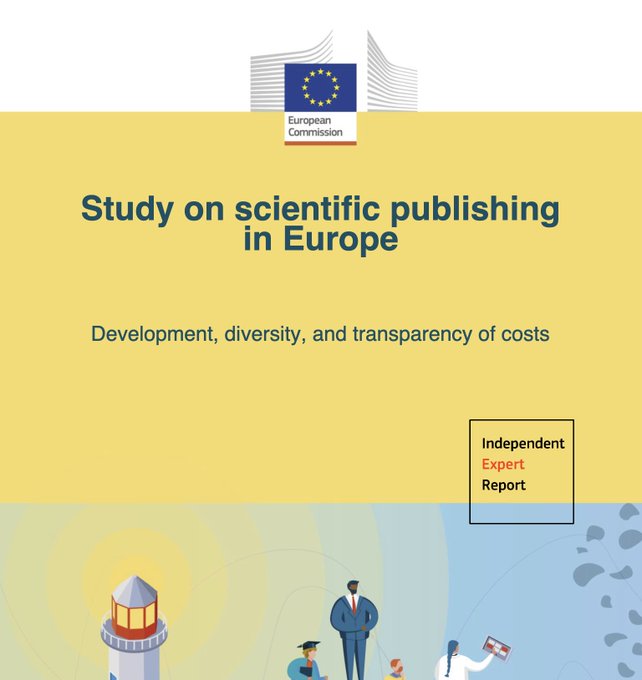
Study on Scientific Publishing in Europe
Study on Scientific Publishing in Europe https://opusproject.eu/wp-content/uploads/2024/03/GHkcQa8XIAE0W6k.jpg 642 680 Open and Universal Science (OPUS) Project Open and Universal Science (OPUS) Project https://opusproject.eu/wp-content/uploads/2024/03/GHkcQa8XIAE0W6k.jpgIn the ever-evolving world of scholarly publishing, the rise of open access has stirred up quite a storm. But amidst this whirlwind of change, there’s a cloud of confusion and secrecy surrounding the money that keeps the wheels turning in the world of academic research. As Europe takes steps to make publishing fairer and more transparent, a recent study has taken a close look at the costs, policies, and practices driving scholarly publishing across the continent.
The European Union has made it clear: they want to clean up the murky waters of deals between institutions, funders, and publishers. They’re aiming for a publishing world that’s clear, open, and doesn’t rely on authors paying to publish their work.
Commissioned to help the European Commission’s push for open access, this study digs deep into how research gets published in Europe. From government policies to deals between universities and publishers, the study breaks down the money behind getting research out to the public.
One big focus of the study is on how different European countries support open access publishing. But there’s a problem: information is all over the place, and not everyone is playing by the same rules. Some countries are investing big bucks, while others seem to be holding back. This shows the urgent need for clear rules and better sharing of information.
The study also shines a light on the role of funders in the world of open access. Some are happy to foot the bill for authors to publish their work openly, while others prefer to support specific projects. But when it comes to funding newer, more experimental forms of publishing, like non-profit ventures, things get tricky. It’s clear that new ideas need new ways of funding.
Then there’s the tangled web of deals between publishers and institutions. From big agreements covering whole countries to smaller deals between individual universities and publishers, it’s a complicated world. But the details of these deals often stay hidden, making it hard to see where the money’s going.
Looking ahead, the study sees a way to get a better handle on how much open access publishing really costs. By matching up data on what gets published with how much it costs, we can get a clearer picture. But there are obstacles in the way, like confusing agreements between publishers and universities, and a lack of detailed information.
Armed with the insights from this study, policymakers and researchers are being urged to work together to make publishing fairer and more open. That means sharing more information, making contracts public, and building better systems to track what gets published and how much it costs.
In the end, this study is like a roadmap, guiding Europe towards a future where research isn’t hidden behind paywalls, but is freely available to everyone who wants to learn and discover.
- Posted In:
- Open Science News




